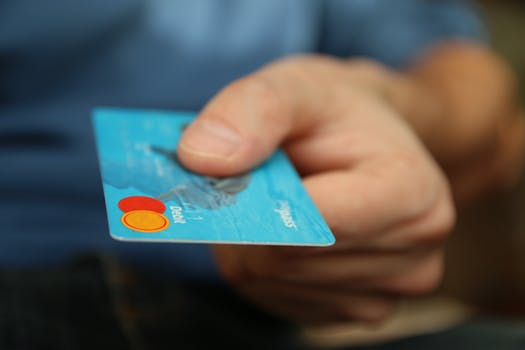One thing more important in a person’s financial journey than obtaining credit cards is boosting credit card score ratings. Every major financial goal requires credit, but paying due attention to your credit scores and actively doing everything necessary to boost that score is what determines the ease with which you will obtain your loan, or if you will successfully secure one at all.
It is anything but a pleasant experience to have your credit application declined. Proper management of your finances and a resultant boost to your credit score will substantially increase your chances of getting approval for that loan.
If you are looking to get your credit score to go from pretty bad to pretty great, then you need to know what you can do to make this happen and fast. There are many things you can do to protect your credit rating, and in today’s how to boost credit rating post, you’ll learn how you can transform your rating from being in the cellar to absolutely stellar.
Credit is very important, and you should know that if you have great credit, doors will open much easier for you when you need cash for a purchase or an emergency. Here are some credit boosting tips for you.
How to boost credit rating
-
- Learn The Rules Of The Game Before You Start Playing.
You know that embarrassing feeling at that moment when a computer tells you “no” or “credit declined”? Exactly! It’s nothing personal, really. But it is nonetheless embarrassing, even depressing. You must understand that a lot of things have built up to that moment, and a compilation of those things make up your credit rating.
- Knowing the rules of the credit game is vital if you want to raise your score fast. Many vital questions need to be asked and research needs to be done to help you better understand the workings of credit ratings and speedy loan acquisitions. Some of those vital questions are listed below:
- How is your credit score calculated?
- What information is contained in your credit file?
- At what point does a credit report in my name begin to exist?
- Who compiles the information about my loan applications and payments in a credit report?
- How do lenders get to know about my credit applications and payments and who provides them with that information?
- What is credit utilization rate and how is it calculated?
- If I pay off my balance after the due reporting fate, will it still reflect positively in my credit report or will my balance still remain high?
- Does the FICO score look at the summation of my credit balances or does it only consider the per card utilization rate?
- Which is the single, most important factor in the FICO formula?
- What are all the factors that influence the FICO formula?
- Why do current negative items affect your score more adversely than older items?
- How long do negative items stay on your record?
- What kind of items can you dispute with credit bureaus?
- Why should you always ask for verification of debt from credit bureaus, collection agencies and original creditors?
- How do you get different agencies to remove items from your record?
-
In a nutshell-the more you know about the credit system, the better your chances of raising your score fast.
Every time you apply for credit, your lender will pull a search on your credit information to see how much of a risk you are. It is therefore not advisable not to apply for loans or credit too frequently.
When too many companies are looking into your credit, it actually will cause your score to drop. If the space of time within which searches are pulled on your credit information is too short, you are more than likely to have your applications declined.
When you are shopping for any financing or anything else that will cause you to have your credit pulled, you should be the one to pull it. Pull your credit from all three of the agencies and take the reports with you to get quotes. Then, when you pick a company to go with, you can let them pull your credit.
Before you apply for credit, however, take the time to do a self-evaluation or eligibility check to know if it is at all likely that you will be favorably attended to.
Do not apply for loans or products that you do not need.
-
When it comes to your credit and how to improve credit rating you need to know that the easiest way to get a higher rating is going to be to pay off some debts.
However, what’s the best way to pay off your balances? In one fell swoop on one account or by distributing the money to touch off on all account balances?
Most people think if they pay off one bigger debt it will affect their score more than paying off a few smaller debts; this is not true, and you should start by paying off all the smaller debts that you are behind on first. This will boost your score faster than anything else.
You will notice that you have balances on all your credit cards and that the credit utilization rate on each card varies from the percentage on another card. Some percentages are high and some are pleasantly low. A lower percentage indicates a lower credit balance. That should be easier to pay off.
Endeavor to pay off (or at least begin to pay off) that particular bill before the closing date so that your reported balance on that card will be a low or a zero. When the FICO system uses its model to calculate your score, it will use the “current” lower balance and this will boost your credit rating.
Also, when seeking help, always remember that you are protected by the Credit Repair Organizations Act.
2. Do Not Let Your Credit Get Checked Too Much
Every time you apply for credit, your lender will pull a search on your credit information to see how much of a risk you are. It is therefore not advisable not to apply for loans or credit too frequently.
When too many companies are looking into your credit, it actually will cause your score to drop. If the space of time within which searches are pulled on your credit information is too short, you are more than likely to have your applications declined.
When you are shopping for any financing or anything else that will cause you to have your credit pulled, you should be the one to pull it. Pull your credit from all three of the agencies and take the reports with you to get quotes. Then, when you pick a company to go with, you can let them pull your credit.
Before you apply for credit, however, take the time to do a self-evaluation or eligibility check to know if it is at all likely that you will be favorably attended to.
Do not apply for loans or products that you do not need.
How To Improve Credit Rating Fast
When it comes to your credit and how to improve credit rating you need to know that the easiest way to get a higher rating is going to be to pay off some debts.
However, what’s the best way to pay off your balances? In one fell swoop on one account or by distributing the money to touch off on all account balances?
Most people think if they pay off one bigger debt it will affect their score more than paying off a few smaller debts; this is not true, and you should start by paying off all the smaller debts that you are behind on first. This will boost your score faster than anything else.
You will notice that you have balances on all your credit cards and that the credit utilization rate on each card varies from the percentage on another card. Some percentages are high and some are pleasantly low. A lower percentage indicates a lower credit balance.
That should be easier to pay off. Endeavor to pay off (or at least begin to pay off) that particular bill before the closing date so that your reported balance on that card will be a low or a zero. When the FICO system uses its model to calculate your score, it will use the “current” lower balance and this will boost your credit rating.
Also, when seeking help, always remember that you are protected by the Credit Repair Organizations Act.
3. Building Good Credit
Another thing you can do to help offset some of the bad debts you have is to get some good debts. You can get a credit card with a small limit and keep it paid off every month. Make sure you do use it but instead pay it off every single month. This will help to build some credit on the positive side, which will help to boost your score.
There are differences in strategies when it comes to how to boost credit rating. Credit knowledge and perseverance, however, seems like the fastest route to better credit. Once you start thinking outside the box, you will be surprised to find how easy credit repair actually is. This article also provides you ways to grow your credit score.
If you would like to get help with boosting your credit rating from professionals, the free guide below will provide you with everything you need to know. It will cover:
- Getting and Understanding your credit reports & scores
- Real “how-to” for improving your credit (these are the very tactics the best credit repair firms in the country use)
- Powerful action plans
To Better Credit!



